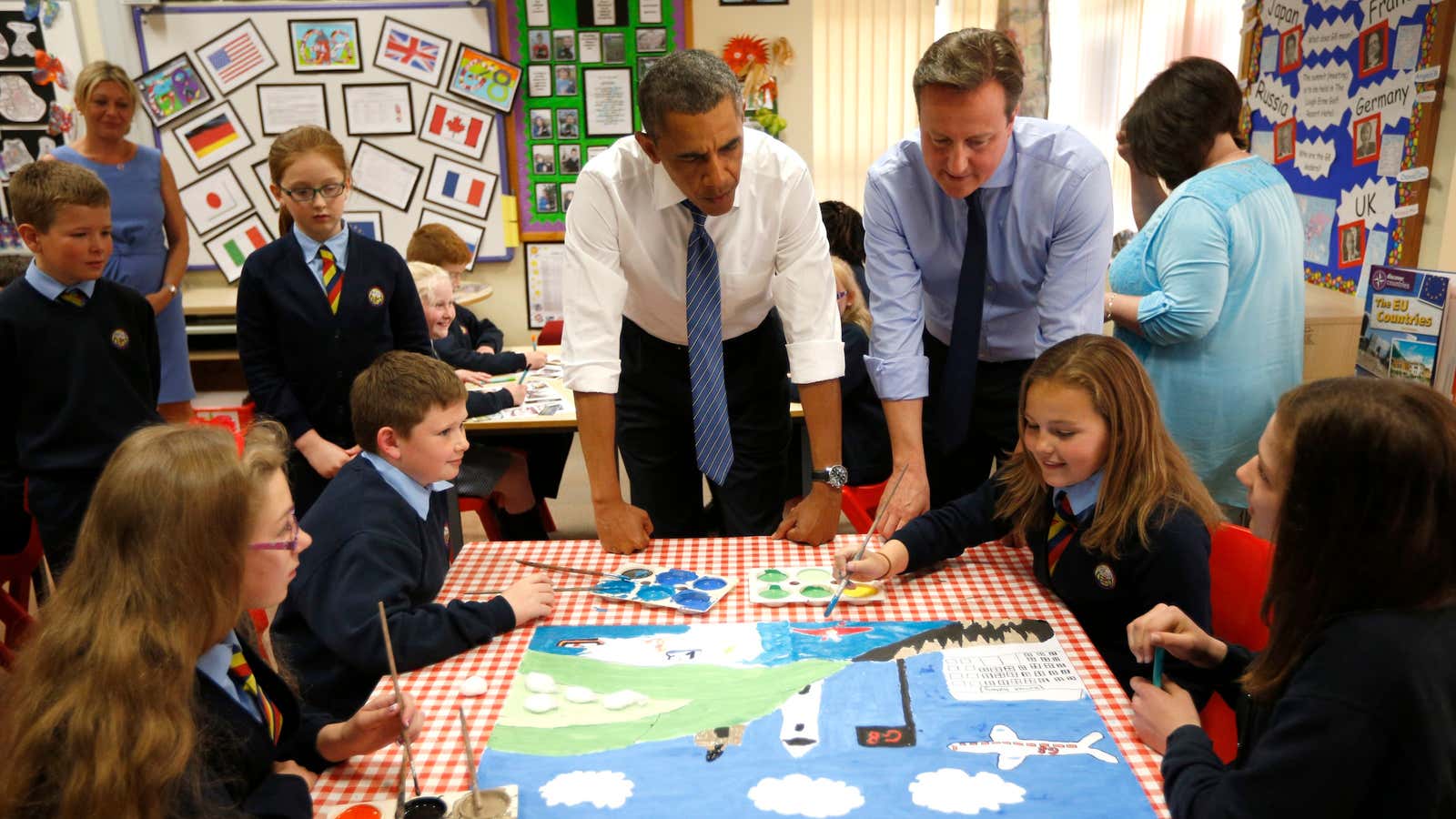US and European Union negotiators have agreed to kick off long-awaited free trade talks on July 8. So, what’s going to kill the deal?
It may be cynical to assume no agreement will be reached, but after all, this is a process that ultimately needs to be approved by two of the world’s least effective institutions: the United States Senate and the European Parliament. While there are countless reasons a deal is in the interest of both economies, there are also serious obstacles.
The first thing to keep in mind is that the Transatlantic Trade and Investment Partnership (TTIP) is much more about investment than trade. Foreign direct investment between Europe and the US is roughly $3.7 trillion, while trade clocks in at a mere $1 trillion or so. Tariffs are already fairly low, except for a few sticky industries, and the real fight will be over harmonizing business rules for companies operating in both jurisdictions. No, not just America going metric. That’s not happening any time soon.
Privacy concerns
European officials, already skeptical of privacy rules followed by US technology giants like Google and Facebook, are even more worried following recent revelations about how those companies share information on their users with US intelligence.
“In order to trade services, you of course have to send data via the internet,” Peter Chase, a former US diplomat who represents the US Chamber of Commerce in Europe, told me earlier this year. “Not all of that data is personal data, but it’s pretty hard to have a transaction where personal data is not involved.”
And now Europeans want the US National Security Agency, which is constrained in how much it can spy on American citizens, to extend the same safeguards to European citizens. At the same time, they want the EU’s stricter standards on personal data to apply to companies like Facebook. That’ll be a hard sell for both US spies and US firms.
The war in the air
The competition between the US’s Boeing and Europe’s Airbus has been a contentious issue in trade between the two economies. Each side has taken the other to trade court—the WTO’s dispute resolution mechanism—on charges of subsidizing their domestic aircraft builder. A free-trade agreement would need to include a deal on how each country may support its aerospace leader.
Then there’s the other air war—how to regulate carbon emissions from airplanes. The Europeans have created their own regime to lower airliner C02, much to the consternation of the rest of the world, and TTIP would need to come up with a workable compromise.
The French being French
The French obtained an early victory: No “cultural” industries will be discussed in the early rounds of negotiating the TTIP. This is the first step toward France’s efforts to protect its heavily subsidized domestic film industry. Will it sink the talks? Probably not, though Hollywood is upset. The real risk is that protections for Europe’s film industry become part of a complicated exchange of favors that bogs the broader negotiations down.
Mad cows and champagne grapes
EU-US agricultural trade has been on a bit of a back foot ever since fear of mad cow disease led to a brief US ban on European beef suspected of contamination. Europe permanently banned US beef treated with hormones despite a WTO judgement in the US’s favor, eventually allowing a small amount of high quality US beef to be sold in its markets. And that’s just the most prominent of a range of agricultural disputes; both economies heavily subsidize their farmers.
A related challenge will be “geographical indicators,” which allow the trademarking of certain local products; for example, the only sparkling white wine that the French think should be sold as champagne has to come from Champagne. Consider American cheese-makers: Can they make feta, gorgonzola, mozzarella, munster, parmesan, and provolone? It’s not yet clear how the two economies will come together on those rules.
German kick-backs
Germany, Europe’s export economy par excellence, has a strong incentive to support TTIP. New markets mean new revenues for its businesses, and it sees how TTIP is a useful way to keep its offshore frenemy, the United Kingdom, in the EU circle. Jacob Funk Kirkegaard, a Danish fellow at the Peterson Institute for International Economics, predicts that the Germans will have to grease the rest of Europe to help get them on board with a deal, perhaps with an employment subsidy program along the lines of America’s trade adjustment assistance program, which retrains workers threatened by international competition. Getting these kinds of quid pro quos worked out on the sidelines will be a wrinkle.
Lefties on the loose
On both sides of the Atlantic, governments will have trouble selling a final deal to domestic legislators. In the United States, some left-leaning members of Congress are skeptical of free-trade deals that they think will expose American workers to more competition while bolstering corporate interests. In Europe, similar concerns are on the rise as the economic troubles pummel peripheral states. Rank and file Democrats in the US have already made clear that they won’t support “fast track authority” that would make it easier for President Obama to get Congress’s approval on new trade deals.
Buy American
The US has a lot of federal procurement rules designed to favor US companies, and in the wake of the financial crisis, it beefed them up. Europeans would like to see them go away, or at least be significantly reduced, which could prove a hang-up in Congress.
What else will kill the TTIP? Let me know.
